Maintenance activities on Rochester Bridge are very broad term and relate to anything from a major refurbishment, to day-to-day cleaning and minor repairs.
The daily activity of being the “eyes on the ground” is carried out by Term Maintenance Contractor (TMC) FM Conway, on behalf of the Rochester Bridge Trust.
A contractor is used because they have access to a range of equipment that it would not be economically viable for the Trust to purchase, for example, a street sweeper.
This is a vehicle fitted with brushes that run along the kerb and road, clearing debris and taking it up into a container at the back of the vehicle. It clears large items of debris as well as the smaller particles that you can’t see.
Previously, the street sweeper operated 365 days a year. However, that level of usage was responsible for emitting 12.7 tonnes of carbon per year, which accounted for 70% of the overall carbon emissions for bridge management operations.
In 2021, a trial was carried out to reduce the frequency of road sweeping from seven days a week to three. This did not adversely affect the cleanliness of the bridges, which remain within the standards set in the contract. It also reduced carbon emissions for this task by more than half, to 5.5 tonnes per year.
However, that was not enough. The next step was to change from diesel to an alternative, environmentally-friendly fuel.
At the end of January 2022, the sweeper was changed to use hydrotreated vegetable oil (HVO), to fuel both the drive engine and the sweeping engine. This change delivers a 90% overall reduction in carbon compared to conventional diesel.
This means the street sweeper now emits approximately 1.3 tonnes of carbon per annum compared to 12.7 tonnes before reduction measures.
Another added benefit is that the new street sweeper offers a reduction in noise by up to 4dB.
But why do we need a motorised street sweeper? Why can’t a person with a brush do the job?
The TMC’s role does include a person to manually maintain the levels of cleanliness, but the two are complementary, rather than alternatives. There are many reasons for this, the main one being that it would not be safe for a person to walk along the busy road with a brush.



